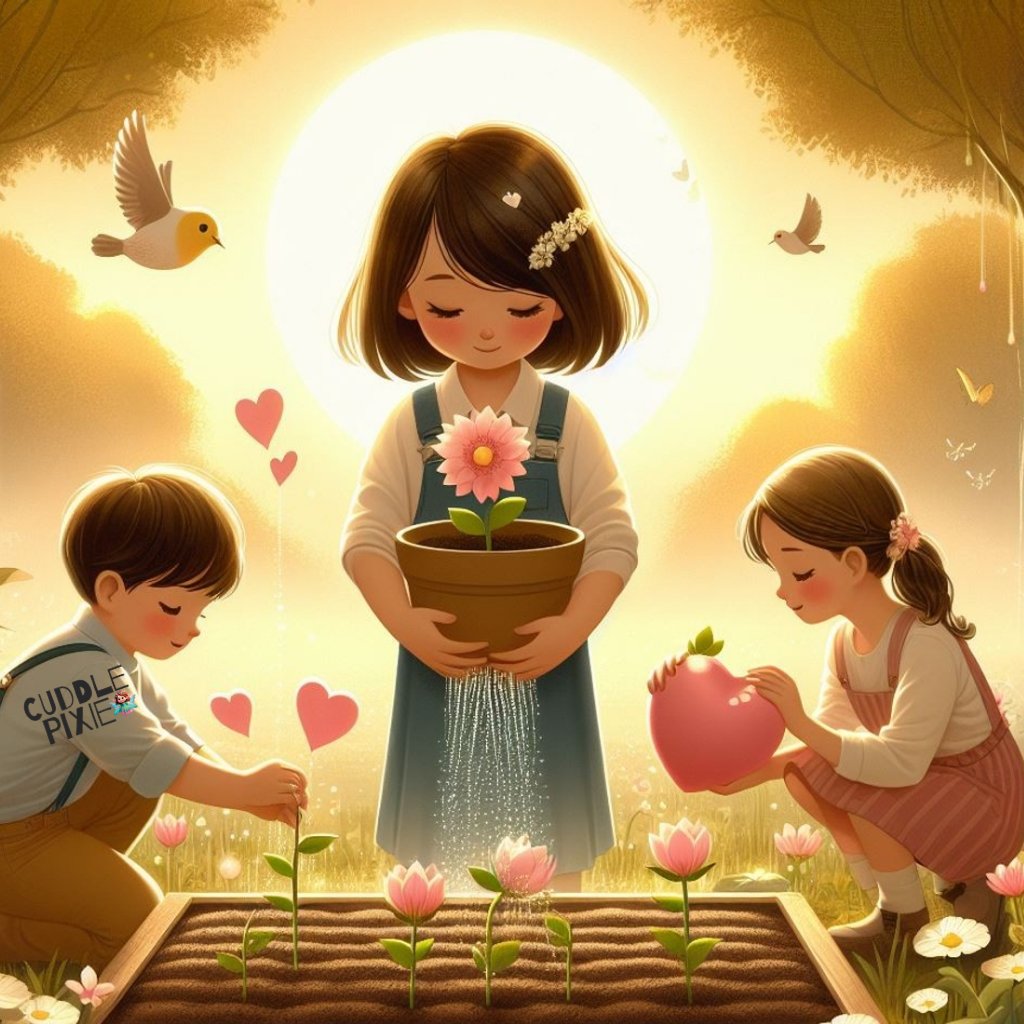Teaching attitude of gratitude in kids helps kids to appreciate their situation instead to observe deficiencies in their life. “Thank you is the phrase that kids listen many times by their parents, siblings, friends and caregivers but it is important to teach them behavior of gratitude instead of just making respond.
Gratitude is a piece of the character trait of being caring rather than to just say “thank you”. Real thankfulness needs thought and energy to feel it. Real thankfulness effects positively both giver as well as receiver. Just teaching a kid to say thank you does not make a child to learn regarding for what they are thankful for and why.
Teaching and making behavior of real gratitude needs time and repeatability by adults. In this article importance of teaching gratitude in children and strategies to teach gratitude in kids have been discussed.
In This Article
Why it is Important to Teach Gratitude to Children?
Researches showed that there are many benefits of teaching gratitude to children. Some of them are discussed below:
- Gratefulness makes children happy: one of the researches in 2019 has showed that gratitude is connected to feeling of happiness in kids by age of 5 years. Therefore, making habit of gratitude in kids at younger age could help them to be as a happy adult as they grow. One of the studies showed that grateful kids having age between 11 to 13 years are found to be happier, positive with having better social support. They observed to be much satisfied with their schools, families, societies, friends and most importantly themselves. These kids are also helpful in providing social support to children as well.
- Gratefulness makes children healthy: A research published in clinical psychology review showed that gratitude is connected to everything from improved psychological well-being to better physical health. The sleep of grateful person is proper and better and they live longer.
- Grateful teens are satisfied with life: one of the findings showed that grateful teens having age between 14 to 19 years are more satisfied with their lives. They are able to use their strengths inorder to make improvement in their communities, they are able to focus in their schoolwork and hobbies and can have better performance in their academics. They are seen to less envious, anxious, depressed and materialistic.
- Grateful children can be Grateful Adults: one of the studies reported that grateful adults are happier and full of hope. Gratitude leads to hope and happiness than other constructs such as forgiveness, patience and self-control.
Ideas to Teach Gratitude to Children
It is important to teach gratitude to children so despite of challenges they feel grateful in this world. Try some of these ideas with your children.
- Gratitude on receiving a gift: If your child receives a gift from family member discuss about it. Ask what the child liked about the gift. Talk about the gift giver and how nice it is to be remembered and appreciated by someone.If your kid receives gift from family member who lives at a long distance so make a thank-you phone call to a long-distance grandparent, aunt, uncle or family friend. Ask your child to talk about what they received and how they will be using their gift.
- Gratitude on one thing daily: Take out time each day at the family table or at bedtime and count one thing that you are thankful for. Ask your kid to sit with you and follow same behavior.
- Local charitable events: Parents should stay in touch with communities organizations who help less fortunate people. Parents can have information through newspapers and radio. Discuss these events during family conversation and include your children in discussion as well. take ideas from children that on which charity they would like to support and why. A very young child you can also contribute or provide an idea like providing their toys to children Who are less fortunate. In this way they are thankful for blessings.
- Read and discuss stories regarding generous people and characters: There are many books that include attitude of gratitude with benefits. Also there are many books that make children as target population And their aim is to teach attitude of gratitude to children. The book “Have You Filled a Bucket Today?” is one of the examples.
- Donate old toys, books and clothing that are no longer in use: Discuss with your kid that how other children might appreciate something when they receive. Find stores or organizations that distribute used items and deliver your donation.
- Sharing with neighbors: Make one weekend day as our family baking day and prepare a small homemade items like cupcake or pan pizza or donuts and share with neighbors Who are having children or senior person or with teacher if they live nearby.
- Focus on generous and kind people and point out their actions to your child: Use phrases like: “Wasn’t it nice of daddy to help grandma with her heavy winter coat?” Or “Did you see that man pick up the litter that someone threw down in the park?” Say “thank you” out loud when someone opens a door for you, lets you cut in front of them in the check-out line at the store, or brings you your morning cup of coffee.
Final Thoughts
Teaching gratitude to children is a life learning process. When parents make gratitude as a part of their life and show actions to children, how the attitude of gratitude becomes part of their life as well and they will be always thankful. Make gratitude a priority in your home. Not only will your child benefit, but the adults will likely get a much-needed boost in happiness and well-being also.
